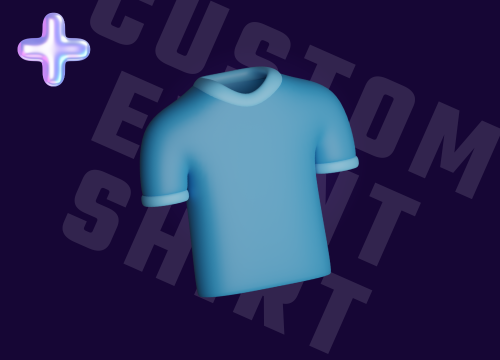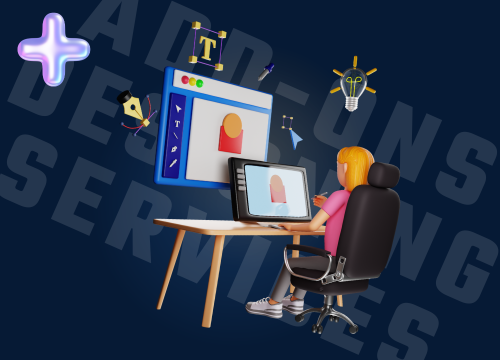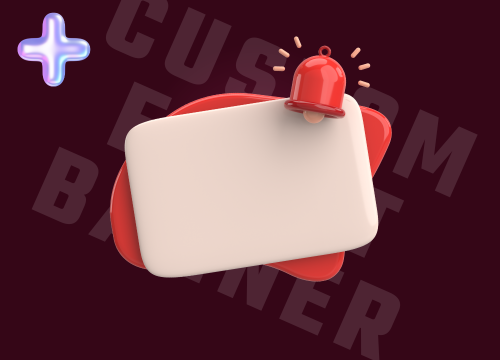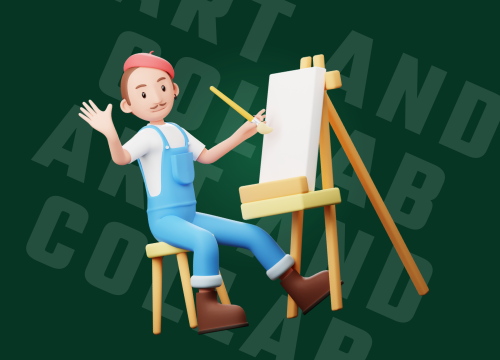How to Deal with Gen Z in the Workplace
It’s 2024, and the number of Gen Z employees in the workplace is rapidly increasing. The oldest members of Gen Z are now in their mid/late-20s, having spent several years building their careers.
Though there’s more entrepreneurial spirit among the Gen Zs, many are still part of the workforce, bringing new ideas and expectations. Employers often wonder how to deal with Gen Z in the workplace—and while some might view it as a challenge, it’s simply a matter of understanding what this generation values. Like previous generations, Gen Z requires a tailored approach that embraces their strengths.
Defining Gen Z in the Workplace
To effectively deal with Gen Z in the workplace, we first need to remove the misconception that they’re too young or immature. As of 2024, many Gen Z workers are already in their mid-20s and are proving to be capable and innovative. In reality, we have seen and worked with many Gen Z employees who are highly capable and display critical thinking skills that sometimes surpass those of their older peers. So, before jumping to the conclusion that they’re “just kids,” look beyond age and focus on their performance and potential that they bring first.
Technically, Gen Z includes those born between 1997 and 2012, making them between 12 and 27 years old today. While there’s overlap with millennials, Gen Z has unique traits that make them stand out in the workplace. One of the most important things to understand when learning how to manage Gen Z employees is that they are digital natives, which greatly influences their work habits and expectations.
Key Characteristics of Gen Z Employees
Gen Z is the first generation of true digital natives. They grew up surrounded by smartphones, social media, and constant connectivity. This technological upbringing shapes how they think, work, and communicate. They are quick to adapt to new tools and systems, making them highly efficient in environments that leverage technology well.
Desire for Flexibility
One of the biggest factors in learning how to deal with Gen Z in the workplace is understanding their desire for flexibility. Gen Z workers value autonomy and prefer the ability to choose how and when they work. This generation doesn’t respond well to micromanagement or rigid schedules, preferring a flexible workplace that allows for both independence and creativity.
If they thrive better less-controlled/rigid environment, why do you want to make them come in at 9am and leave at 6pm? Is it really necessary?

In the past, staying with the same company for an entire career was the norm. But those days are long gone.
Today, employees are more mobile than ever. With social media offering transparency into job opportunities, why stick around if a better offer is out there?
Back then, loyalty was expected—even if employees were unhappy. Now, it’s the other way around: employees expect respect, growth, and development from their employers. If those expectations aren’t met, they’ll move on without hesitation.
Trust is another issue. After years of corporate scandals and mass layoffs, the idea of job security has taken a hit. Many employees no longer rely on companies for stability, choosing instead to focus on their own career paths.
When it comes to Gen Z, they place even less emphasis on long-term loyalty. The old “stick with one company for life” mindset doesn’t resonate with them. And it’s not about laziness—it’s about recognizing today’s rapidly changing job market. Gen Z employees want job flexibility and roles that align with their personal values and goals.
At the end of the day, employees—especially Gen Z—are more independent than ever, before, during, and after their employment. Is that really such a bad thing? It’s worth thinking about.
Values Conscious
Moreover, Gen Z in the workplace is socially and environmentally conscious. Many members of Gen Z make career decisions based on a company’s values and ethical practices. To deal with Gen Z employees, businesses need to demonstrate a genuine commitment to these causes, as this generation is more willing to switch jobs or change their consumer behavior if they feel a company lacks social responsibility.
What Employers Need to Understand
Now that we’ve covered who Gen Z employees are, let’s talk about strategies to effectively deal with Gen Z in the workplace.
Flexibility is key
First, flexibility is key. Whether it’s offering remote work options or flexible hours, allowing them to have some control over their work environment is important. The rigid 9-to-5 office setup doesn’t appeal to most Gen Z workers. Instead, they prefer a results-driven approach where output matters more than time spent at a desk.
Passion for Purpose
Gen Z in the workplace is highly socially and environmentally conscious. Many of them make career decisions based on a company’s values and ethical practices. To deal with Gen Z employees, businesses need to show a genuine commitment to causes like corporate social responsibility (CSR) and sustainability. This generation expects companies to use their power for the greater good, whether it’s making a positive social impact or taking real steps to protect the environment.
And here’s the thing—it’s not just about keeping Gen Z happy. Embracing CSR also benefits businesses. It strengthens communities, brings teams together, makes work feel more meaningful, and can even improve a company’s bottom line. Gen Z is quick to switch jobs or change their buying habits if they feel a company isn’t doing enough, so it’s not just a trend—it’s a must.
Open Communication and Transparency
Lastly, communication with Gen Z should be open and transparent. They appreciate direct feedback and want to be involved in discussions about their role and performance. Hierarchical, top-down communication styles might not resonate as well. Instead, collaborative environments where they can voice their ideas and concerns are likely to keep them engaged and productive.
Leverage Technology
Since Gen Z workers are digital natives, businesses that leverage technology will find it easier to engage this generation. From digital collaboration tools to streamlined communication platforms, incorporating tech into daily operations helps Gen Z employees work more efficiently.
And So Many More!
These are just a few examples of the exciting games we’ve incorporated into the Sotong Game experience. From traditional Malaysian childhood games to new and innovative challenges, there’s something for everyone. We’ve only scratched the surface of what’s available, so reach out to us to get the full list of games and a personalized proposal for your team. Whether you’re looking to boost morale, enhance communication, or simply have a fun day out of the office, we can tailor the perfect Sotong Game event for you.
Conclusion: Why You Should Embrace Gen Z in the Workplace
In conclusion, learning how to deal with Gen Z in the workplace is essential for businesses aiming to stay competitive in 2024 and beyond. This generation brings unique skills, values, and work ethics that, if managed correctly, can drive innovation and success. Instead of resisting change, employers should focus on embracing the Gen Z work mindset. Offering flexibility, fostering a purpose-driven culture, and leveraging technology will not only help you deal with Gen Z but also position your business as a forward-thinking employer.
By understanding the values and preferences of Gen Z in the workplace, businesses can create environments where this generation thrives, ultimately benefiting the organization as a whole.
Embracing Gen Z in the workplace isn’t just about adapting to their preferences—it’s about creating an inclusive, forward-thinking environment where all generations can thrive. From Baby Boomers to Millennials to Gen Z, every generation brings different perspectives, skills, and values shaped by their unique experiences. The challenge lies in finding ways to bring these diverse groups together into a cohesive team.
One powerful way to do this is through meaningful team-building experiences. Activities that encourage collaboration and understanding can bridge generational gaps and foster a sense of unity. Corporate social responsibility (CSR) initiatives are another great tool. They allow employees from all walks of life to work toward a common goal, making their work more purposeful while also benefiting the broader community.
Ultimate Goal: Blending Gen Z and the other generations together in Workforce
This is where Braver Strides comes in. As a team-building provider, we specialize in hosting customized, meaningful team-building events that are tailored to your team’s dynamics and maturity. We understand the importance of uniting employees across generations, helping them connect through shared experiences that matter. Whether it’s through team-building exercises or impactful CSR activities, Braver Strides ensures that your investment in your team not only strengthens relationships but also delivers a strong return for your organization. Let us help your team take strides toward a more connected, productive future.
Ready to Transform Your Team?
If you’re looking to turn competition into collaboration and create a stronger, more unified team, the Sotong Game is the perfect team-building experience for you. Not only will your team enjoy a day filled with unique challenges and strategic fun, but you’ll also be contributing to a charitable cause with every success. It’s a win-win situation, where everyone walks away with something valuable.
Contact us today to arrange your very own team building event and discover how this innovative approach can bring your team closer together while making a difference in the community.
LET'S START PLANNING YOUR NEXT
TEAM BUILDING CSR PROGRAM TRAINING PROGRAM CORPORATE EVENT RETREAT EVENT
EVENT EXPERIENCE ADD-ON
Add some extra spice to your event!
HEY! YOU MAY ALSO LIKE
Some of our trending activities! Mix and match for MEGA fun session!














